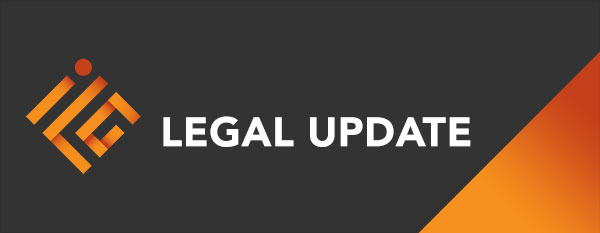Congress Passes Law Banning Mandatory Arbitration of Sexual Assault and Sexual Harassment Claims
On March 3, 2022, President Joe Biden ratified H.R. 4445— the Ending Forced Arbitration of Sexual Assault and Sexual Harassment Act of 2021 (the “Act”). [1] The landmark #MeToo Act is aimed at preventing employers from quiring arbitration of workplace sexual harassment or sexual assault claims filed under federal, state, or tribal law.
In 2018, the U.S. Supreme Court decided Epic Systems Corp. v. Lewis,[2] which allowed companies to include forced arbitration clauses in employment contracts to prohibit workers from banning together to take legal action over workplace issues. Since Epic, the use of arbitration agreements in the employment context has greatly increased. In response, individual states such as New York and California passed legislation limiting or prohibiting the arbitration of such claims, placing the onus on employers to traverse the varying state laws.[3] Now, the Act (which was effective immediately) prohibits employers from enforcing dispute arbitration processions and class/collective action waivers with respect to sexual assault and sexual harassment claims “at the election of the person alleging” the misconduct.[4] This means that, although employers may still include arbitration provisions, employees may elect to be released from any pre-dispute arbitration agreement relating to a sexual assault or sexual harassment dispute.
It is important to note that the Act only applies to “pre-dispute” arbitration provisions and waivers. Meaning, the Act will not affect agreements entered into after a dispute has arisen. Additionally, the Act is limited to sexual harassment and sexual assault disputes. It will have no other effect on other types of employment-related claims. It is unclear at this time how the Act will operate in cases with multiple causes of action. For example, if an employee brings a sexual harassment and a discrimination claim in one lawsuit, will both claims proceed to arbitration, or will they be pursued separate?
Colleges’ Failure to Investigate New Hires’ Sexual Harassment History Leads to Lawsuits
In early 2022, three graduate students sued Harvard University for sexual harassment by a tenured professor, claiming that the university hired the professor despite knowing that he had a history of sexual harassment allegations at his previous school.[5] Their lawsuit also alleges that Harvard ignored allegations against the professor from other students at the university, including one of the individuals who sued. This lawsuit highlights a growing problem with the way that colleges and universities throughout the country address sexual harassment claims amongst their faculty and staff.
The phenomenon known as “pass-the-harasser” is a common theme in higher education.[6] This phrase refers to the way institutions enable employees to move on to new jobs without new employers knowing about their history of sexual harassment in the workplace. “Pass-the-harasser” situations arise when hiring schools do not investigate information related to past sexual misconduct. This phenomenon highlights a glaring issue with the way that colleges address sexual harassment. Typically, universities tend to focus more on compliance with laws related to sexual misconduct than on prevention. In fact, colleges spend hundreds of millions of dollars to address harassment claims, but they do not usually screen prospective hires for prior sexual misconduct. This practice is a breeding ground for the “pass-the-harasser” phenomenon.
Some universities are adapting to fix their blind spots. For example, the University of Wisconsin System will now automatically share information about sexual harassment findings against employees when contacted for a reference check by another system campus or state agency.[7] The new system also requires that final candidates and their references answer certain questions aimed at discovering the candidate’s past history, if any, of sexual harassment or sexual violence. Wisconsin implemented this new policy in light of an investigation finding that their Title IX coordinator had likely harassed someone on campus, only to be hired at a different system school two years later. Title IX coordinators are responsible for coordinating investigators into sexual misconduct cases on campus.
On November 1, 2021, the Association of American Universities adopted a set of principles designed to encourage its members to take more on to prevent sexual assault.[8] The organization includes 66 of the top research universities. These three principles deal directly with sexual misconduct investigations and findings:
- A member school should request or require applicants to sign a release for prior findings of sexual misconduct.
- Schools should share substantiated findings of sexual misconduct with prospective employers when requested.
- Schools should complete all investigations into sexual misconduct.
Other colleges and universities across the country should adopt similar principles and practices in order to halt the “pass-the-harasser” phenomenon in its tracks. Proactively addressing sexual harassment is a practice that schools must uniformly undertake in order to diminish sexual misconduct in the field.
[1] https://www.congress.gov/bill/117th-congress/house-bill/4445/text.
[2] Epic Systems Corp. v. Lewis, 584 U.S. (2018).
[3]https://www.dlapiper.com/en/us/insights/publications/2022/02/congress-passes-law-banning-mandatory-arbitration-of-sexual-assault-and-harassment-claims.
[4] https://www.congress.gov/bill/117th-congress/house-bill/4445/text.
[5] https://news.yahoo.com/colleges-routinely-fail-ask-hires.
[6] Id.
[7]https://www.insidehighered.com/news/2018/09/25/u-wisconsin-system-proceeds-plan-disclose-misconduct-findings-against-employees.
[8] https://www.aau.edu/aau-principles-preventing-sexual-harassment-academia.

